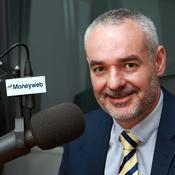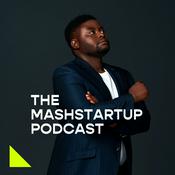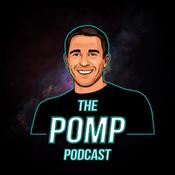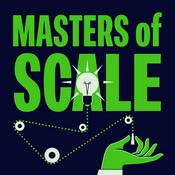208 episodes
- Chinese car makers continue their rapid push into the South African market, raising uncomfortable questions for incumbents. With aggressive pricing, fast product cycles and increasingly polished vehicles, the competitive landscape is shifting faster than many expected.
There is also an update on Stellantis’s manufacturing plans and what they could mean for South Africa’s position in global automotive supply chains.
The discussion turns to plug-in hybrids, which are emerging as a key battleground. The Omoda C9 PHEV and Haval H6 GT PHEV are discussed as examples of how Chinese brands are targeting buyers not yet ready to go fully electric.
Duncan and William chat about two new vehicles in South Africa: the Leapmotor C10 (and why William hates the term REEV) and the Alfa Romeo Junior Elettrica (which William is prepared to give a kidney to own).
And then there’s the Toyota GR GT. Duncan explains why this supercar has him seriously questioning his principles – and why some petrol cars are still capable of making rational people do irrational things. TechCentral TCS | BMW CEO Peter van Binsbergen on the future of South Africa’s automotive industry
2026/1/20 | 30 mins.South Africa’s automotive industry is in a state of flux. In this episode of the TechCentral Show, BMW Group South Africa CEO Peter van Binsbergen unpacks the challenges – and opportunities – facing a sector under pressure.
He tells TechCentral editor Duncan McLeod about the future of BMW’s Rosslyn manufacturing plant in Pretoria, which was established more than half a century ago, and the urgent need for new government policy to ensure the automotive industrial base in South Africa is future-fit and ready for the shift to electric mobility.
Van Binsbergen also discusses the rise of imported vehicles in the sales mix in South Africa – including the rapid expansion of Chinese brands. China is a market he knows well, having spent three years there with BMW.
In the interview, TechCentral Show viewers will also hear about:
• The state of the local automotive manufacturing industry;
• What South Africa needs to implement in policy reform to ensure the automotive industrial base in South Africa – and why this is urgent;
• How the country must adapt to the global shift to electric mobility;
• The role of BMW’s IT Hub in South Africa;
• BMW’s global EV strategy, and what that means for South African EV buyers; and
• BMW’s Neue Klasse vehicles, which run the company’s next-generation EV platform, and why they are significant to its future.
Don’t miss a fascinating discussion! TechCentral- Cybersecurity is undergoing a quiet but important shift in South African boardrooms: from a defensive cost centre to a strategic business enabler. That was the central theme of a recent TechCentral TCS+ podcast discussion featuring Vodacom Business acting executive head for cloud security Lukhanyo Zahela and KnowBe4 Africa senior vice-president for content strategy Anna Collard.
Once seen primarily as an IT problem, cybersecurity is now recognised as a material business risk with direct financial, operational and reputational consequences. But the discussion made clear that security, done well, can also signal organisational maturity to regulators, investors and partners – and increasingly, become a source of competitive advantage.
Collard likened strong security controls to having “good brakes on a fast car”. Without them, businesses cannot safely deploy emerging technologies such as artificial intelligence or scale digital platforms with confidence. Availability and resilience, she argued, are foundational: “Businesses are in business to stay in business.”
That foundation is under growing pressure. Zahela said South Africa’s threat landscape is evolving rapidly, driven by a criminal ecosystem that is itself adopting automation and AI. Phishing attacks have become far more convincing, while ransomware continues to disrupt cloud migrations, often exploiting misconfigured environments rushed into production.
Defenders, however, are also using AI. Vodacom Business has integrated AI-driven detection and response into its managed security services, reducing the time taken to detect and respond to threats from hours to minutes, or even seconds. Crucially, these systems are adaptive, learning continuously from global threat intelligence rather than relying on static rules.
Despite advances in automation, human behaviour remains central to security outcomes. Many breaches still involve simple mistakes. Collard argued that well-trained employees can act as an extension of the security function, providing judgment and context that AI cannot. The challenge is that organisations must now secure not only people, but also the AI tools and agents they use – all of which can themselves be manipulated.
This requires what Collard described as “digital mindfulness”: a security-aware culture led from the top. Executives must model good behaviour, while organisations adopt zero-trust principles that continuously verify identity and access rights across employees, partners and devices, enforcing least-privilege access by default.
To turn security into an enabler rather than a blocker, it must be embedded from the start. “Security by design” – integrating safeguards into systems, processes and digital initiatives upfront – avoids costly retrofits later and allows innovation to move faster with clearer risk boundaries.
The payoff can be tangible. A strong security posture can reduce cyber-insurance costs, improve business continuity and prevent expensive operational disruptions. More broadly, trust built through resilience and good governance can attract customers, partners and investors.
The key message for business leaders, the speakers agreed, is to stop treating security as reactive. The more powerful question is no longer, “How do we protect what we have?”, but rather, “How does security enable us to do what we couldn’t do before?”
Don’t miss this important conversation! TechCentral - TechCentral’s motoring show, Watts & Wheels, is officially back, with the first full episode of season 1 widening the lens beyond new cars to look at the forces reshaping South Africa’s automotive industry.
The first episode of season 1 – you can catch our “season 0” episodes here – opens with a sharp focus on South African Auto Week, where the pressure on local vehicle manufacturers dominated discussions.
Original equipment manufacturers are facing a tough balancing act as imports rise while local assembly plants wrestle with costs, scale and uncertainty.
From policy to products, the show then shifts gears to tyre maker Bridgestone, which has launched new tyre offerings for the South African market. In an interview, Jacques Rikhotso, CEO of Bridgestone South Africa, unpacks how changing vehicle technologies – including heavier EVs – are influencing tyre design, durability and safety.
Chinese brands also feature prominently. A dramatic crash test involving the Chery Tiggo 9 Pro highlights the rapid strides Chinese manufacturers are making in safety engineering. Meanwhile, BYD continues to push the boundaries of EV infrastructure, announcing plans for a 1MW ultra-fast charging network, championed by BYD executive Stella Li.
Adventure meets electrification with a discussion on Volvo EX30 Cross Country, which recently tackled the iconic Sani Pass – a symbolic moment for EV capability in rugged African conditions.
On the new-car front, the team runs through arrivals and upcoming launches including the BYD Dolphin Surf and the forthcoming Volvo EX60.
The review spotlight falls on the Lexus GX550, described as the “anti-EV”: a traditional, petrol-powered luxury off-roader that doubles down on ruggedness rather than electrification.
Rounding out the episode is an interview with Andrew Kirby, CEO of Toyota South Africa, and we speculate on the electric vehicle models Toyota is likely to introduce into the local market in 2026. TechCentral TCS+ | Africa’s digital transformation – unlocking AI through cloud and culture
2025/12/11 | 40 mins.Africa’s digital transformation continues to accelerate, driven by growing cloud adoption and rising interest in artificial intelligence.
Yet many organisations still face challenges in converting these ambitions into measurable business outcomes. According to Cliff de Wit, group chief innovation officer at Accelera Digital Group, the success of AI-driven initiatives depends as much on culture and governance as it does on technology.
In this episode of TechCentral’s TCS+ podcast, De Wit outlines the practical steps leaders can take to reduce organisational friction, strengthen data foundations and enable cloud-led innovation at scale.
“Cloud is no longer an IT decision. It is the foundation on which every modern AI strategy is built,” says De Wit. And technical readiness alone is not enough. “The biggest barrier is not the tech, it’s whether the organisation is prepared to manage change at the pace AI requires.”
In this episode, De Wit discusses:
• The concept of organisational drag and how it affects AI progress;
● Approaches to strengthening culture and governance within digital programmes;
● The role of the C-suite in accelerating cloud and AI adoption while demonstrating clear return on investment;
● What an AI-ready data foundation looks like and why it is essential;
● How strong data management practices unlock new sources of business value; and
● Why African organisations are increasingly well positioned to advance rapidly through cloud-first strategies.
The discussion provides practical guidance for business and technology leaders seeking a clearer understanding of how cloud, data and culture intersect to enable enterprise-wide AI transformation. Don’t miss it! TechCentral
More Business podcasts
Trending Business podcasts
About TechCentral (main feed)
This is the main feed for all of TechCentral's shows and podcasts, including TCS - The TechCentral Show and TCS Impact Series. Never miss anything we produce and publish by subscribing to this feed.
Podcast websiteListen to TechCentral (main feed), The Money Show and many other podcasts from around the world with the radio.net app
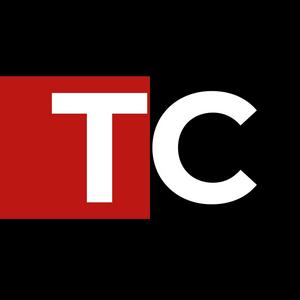
Get the free radio.net app
- Stations and podcasts to bookmark
- Stream via Wi-Fi or Bluetooth
- Supports Carplay & Android Auto
- Many other app features
Get the free radio.net app
- Stations and podcasts to bookmark
- Stream via Wi-Fi or Bluetooth
- Supports Carplay & Android Auto
- Many other app features


TechCentral (main feed)
Scan code,
download the app,
start listening.
download the app,
start listening.







